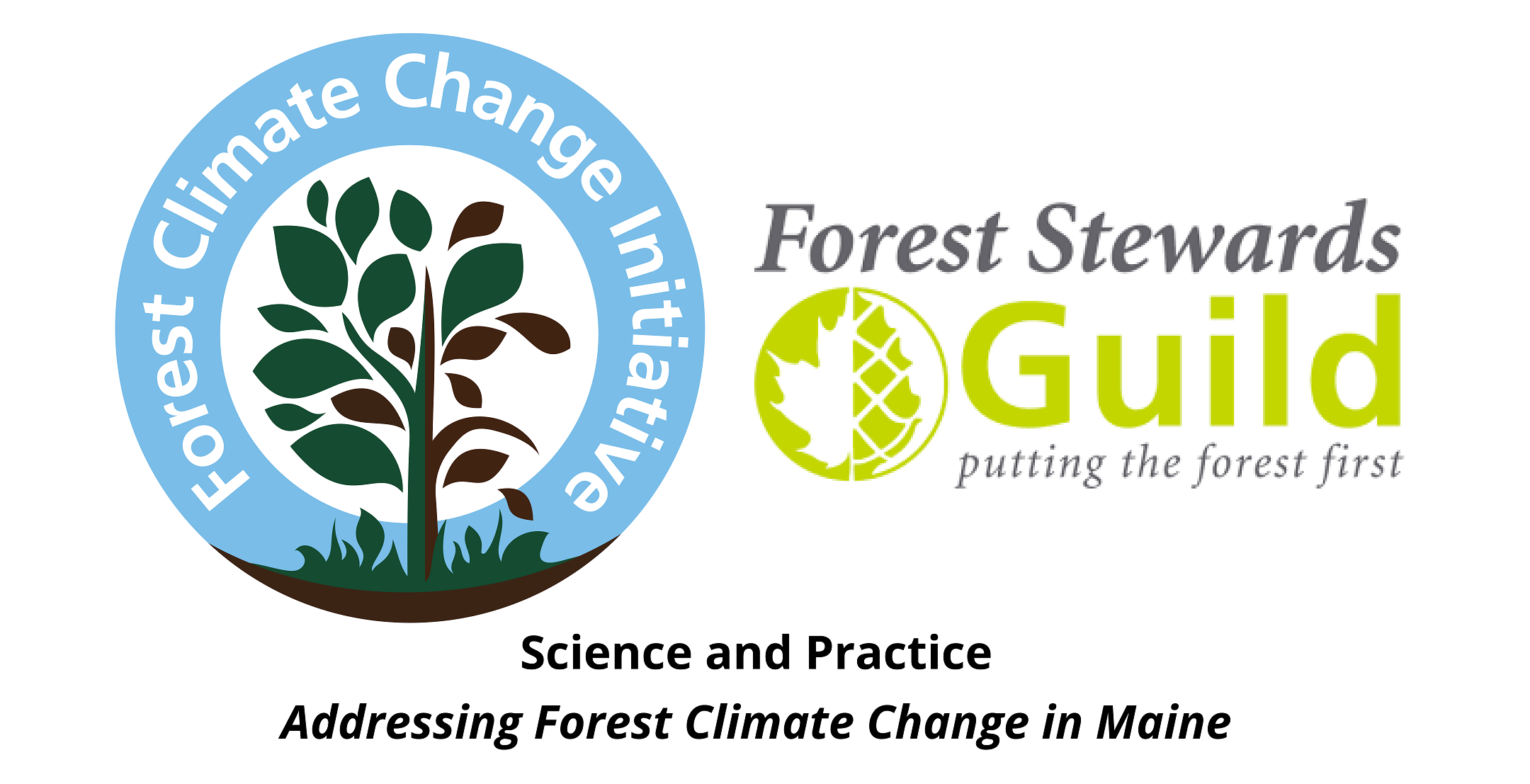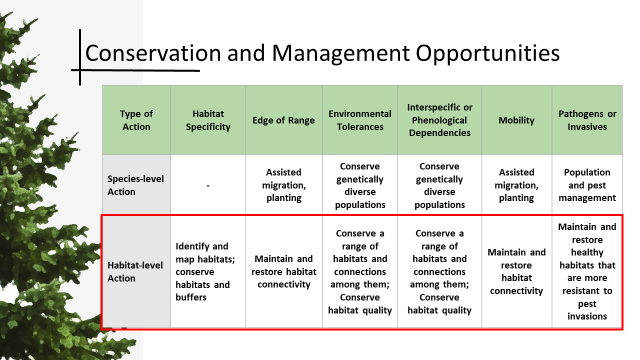FCCI Webinar #4: Forest Biodiversity & Species Shift
 The fourth in our Fall/Winter webinar series is focused on Forest Diversity and Species Shifts with Dr. Erin Simons-Legaard,
The fourth in our Fall/Winter webinar series is focused on Forest Diversity and Species Shifts with Dr. Erin Simons-Legaard,
Assistant Research Professor in Forest Landscape Modeling, and
Dr. Amanda Shearin Cross, Wildlife Resource Supervisor, Maine Dept. of Inland Fisheries & Wildlife,
Eligible for 1 Category 1 SAF CFE
Webinar Recording
Biodiversity/Species Shifts Resources
FCCI, An Overview of Climate Effects on Forestland Biodiversity in Maine (pdf)
Click on slide below for full slide presentation by Drs. Simons-Legaard & Cross
E. Simons-Legaard, A. D’Amato, K. Legaard, B. Sturtevant, & A. Weiskittel, Future Distribution and Productivity of Spruce-Fir Under Climate Change: A Comparison of the Northeast and the Lake States. Research report for the Northeastern States Research Cooperative (nsrcforest.org)
Maine Climate Council, Maine Won’t Wait, A Four-Year Plan for Climate Action (HTML5 Flipbook)
MCC, Scientific & Technical Subcommittee, Scientific Assessment of Climate Change and its Effects in Maine Report (HTML5 Flipbook)
Northeastern Forest Information Source (nefismembers.org). Access to a variety of open-source research focused on biodiversity.
Biodiversity Impacts in Maine (from MCC-STS)
- Iconic Maine species such as moose, Canada lynx, loons, boreal chickadees, eastern brook trout, saltmarsh sparrows and Atlantic puffins are under stress from climate change.
- Sub-Arctic and boreal marine species are disappearing from the Gulf of Maine’s traditional fishing grounds as they move northward with ocean warming, while temperate species from the south invade.
- Ocean acidity levels have already risen 30 percent and will continue rising alongside growing greenhouse gas levels. Ocean acidification has already impacted some aquaculture operations in Maine and will increasingly affect marine organisms that produce calcium carbonate to build shells, such as oysters, scallops, clams, mussels, and sea urchins.
- Extreme precipitation, changing temperatures, and other impacts from climate change are contributing to stress on Maine’s native tree species.

